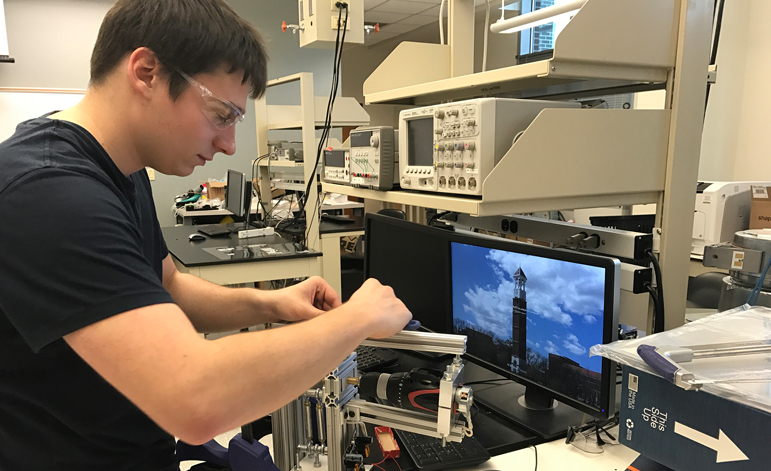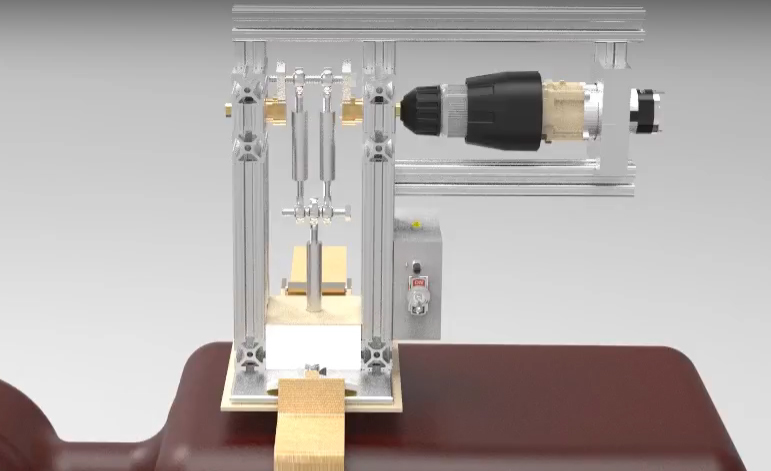AutoCPR senior project earns honor for Biomedical Engineering
Those students will be honored at the annual Biomedical Engineering Society meeting Oct. 11-14 in Phoenix for their Low-cost Accessible AutoCPR project. The group won the 2017 Engineering World Health Design Competition.
Shadman Jubaer, Michael Dziekan, Vicki Sell and Sudhanshu Manda also received a monetary award for winning the design competition.
Engineering World Health indicated the team’s design contributes to ongoing international research to improve health care in low-resource environments.
Hyowon “Hugh” Lee, assistant professor of biomedical engineering, said Jorge Alfredo Uquillas, a Purdue alum and professor of bioengineering and medicine at Universidad San Francisco de Quito in Ecuador, approached him and the biomedical senior design students with a problem that surfaced during the country’s 7.8 magnitude earthquake last year that resulted in preventable deaths.
“He shared with us that there was a critical shortage of personnel to perform CPR during long transfer to hospitals,” Lee said. “We presented the problem, and this team of students immediately gravitated toward this project given its potential global impact, especially in disaster-stricken developing countries.”
Watch the video of the team and the AutoCPR machine.

Dziekan remains in Purdue’s College of Engineering as a graduate student in mechanical engineering. The other team members have graduated.
Using a low-cost drill motor, the team created a lightweight assembly that can repeatedly apply 150 pounds of force to a patient’s chest, duplicating the CPR process. An adjustable strap secures the unit, which is powered by a 12-volt battery.
The final manufacturing cost for the unit is $540, compared to competing products that cost $12,000.
Lee said the team worked throughout the 2016-17 academic year to develop the winning prototype. The work was done by collaborating with Uquillas and his university medical students, who helped identify the requirements for the AutoCPR machine.

Source: Purdue Newsroom
